MARS Foodservices Announces Culinary Educator as Winner of 2013 Chef Showdown Dessert Recipe Contest
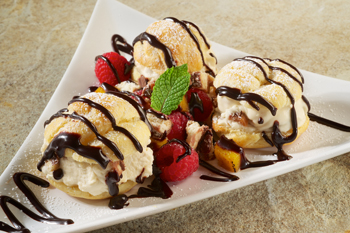 Chef Michael Watz, instructor at Washburne Culinary Institute in Chicago, is the winner of a $2,000 cash prize for his recipe entry in the MARS Foodservices Chef Showdown 2013 Dessert Recipe Contest. His original recipe, Mascarpone TWIX® and Shout,combines TWIX® Caramel Cookie Bars and mascarpone cheese to create a luscious filling for delicate cream puffs topped with roasted mango, fresh raspberries and chocolate sauce.
Chef Michael Watz, instructor at Washburne Culinary Institute in Chicago, is the winner of a $2,000 cash prize for his recipe entry in the MARS Foodservices Chef Showdown 2013 Dessert Recipe Contest. His original recipe, Mascarpone TWIX® and Shout,combines TWIX® Caramel Cookie Bars and mascarpone cheese to create a luscious filling for delicate cream puffs topped with roasted mango, fresh raspberries and chocolate sauce.
“It’s a new recipe and it was developed with TWIX® Caramel Cookie Bars as the inspiration,” Watz said. “I wanted a unique way to present the candy in a new and meaningful way. It’s a contemporary dessert that can be marketed in an upscale restaurant, but also would be appropriate as a mid-price-range recipe at a steakhouse wanting to add something different. The Chef Showdown recipe contest was a great opportunity to work with a quality product. I certainly enjoyed the creativity aspect of it and I look forward to working with MARS candy brands in any capacity.”
MARS Foodservices awarded two runners up—Adam Hegsted, executive chef at Coeur d’Alene Casino in Worley, Idaho, for his dessert creation, Molten SNICKERS® Cake with Whipped Peanut Butter and Warm Caramel Sauce, and Amber Croom, head pastry chef at Bellini’s Ristorante & Bar in Birmingham, Ala., for her recipe, Twixmisu Cocktail.
For more dessert recipes and menuing inspiration, visit www.MARSFoodservices.com.

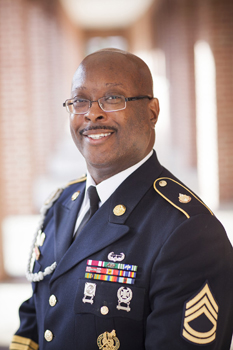 To help future foodservice and hospitality leaders serving our nation make the transition from the military to college, The Culinary Institute of America (CIA) has a new member of its admissions staff dedicated to assisting veterans in planning for their post-military careers.
To help future foodservice and hospitality leaders serving our nation make the transition from the military to college, The Culinary Institute of America (CIA) has a new member of its admissions staff dedicated to assisting veterans in planning for their post-military careers. Among many professional-development events held last year, the sum of different voices, perspectives and expertise areas was the most valuable take-away.
Among many professional-development events held last year, the sum of different voices, perspectives and expertise areas was the most valuable take-away.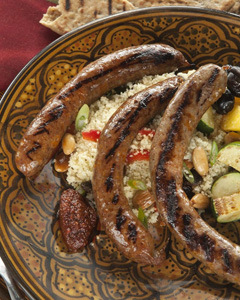 A roundup of predictions for this year from the most respected sources.
A roundup of predictions for this year from the most respected sources.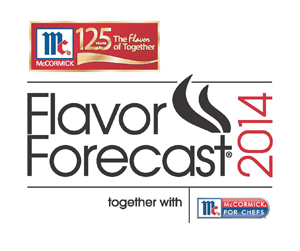 This special-edition flavor forecast commemorates McCormick’s 125th anniversary with predictions for such trending flavors as chamoy sauce, cassava flour and tea.
This special-edition flavor forecast commemorates McCormick’s 125th anniversary with predictions for such trending flavors as chamoy sauce, cassava flour and tea.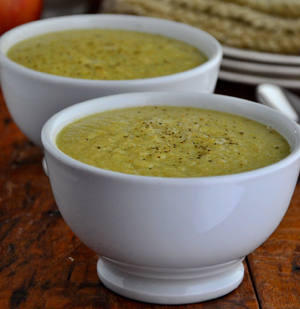 Most every restaurant will offer soup, but not every “restoring shop” will have a uniquely delicious apple soup. Says this expert, they should.
Most every restaurant will offer soup, but not every “restoring shop” will have a uniquely delicious apple soup. Says this expert, they should.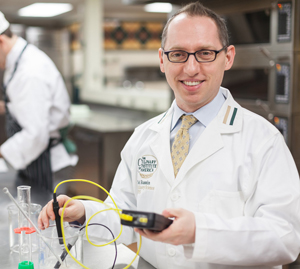 Videos by Ted Russin are included in a free course with 80,000 students worldwide.
Videos by Ted Russin are included in a free course with 80,000 students worldwide.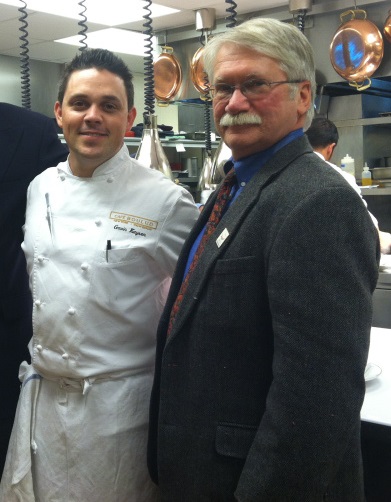 A Q&A with Gavin Kaysen, who while young represented the United States in the Bocuse d’Or and today heads the kitchen of Café Boulud in New York City.
A Q&A with Gavin Kaysen, who while young represented the United States in the Bocuse d’Or and today heads the kitchen of Café Boulud in New York City. One of the most powerful techniques to help students remember what they have learned and apply it to a range of situations is the assignment to write letters to themselves.
One of the most powerful techniques to help students remember what they have learned and apply it to a range of situations is the assignment to write letters to themselves.